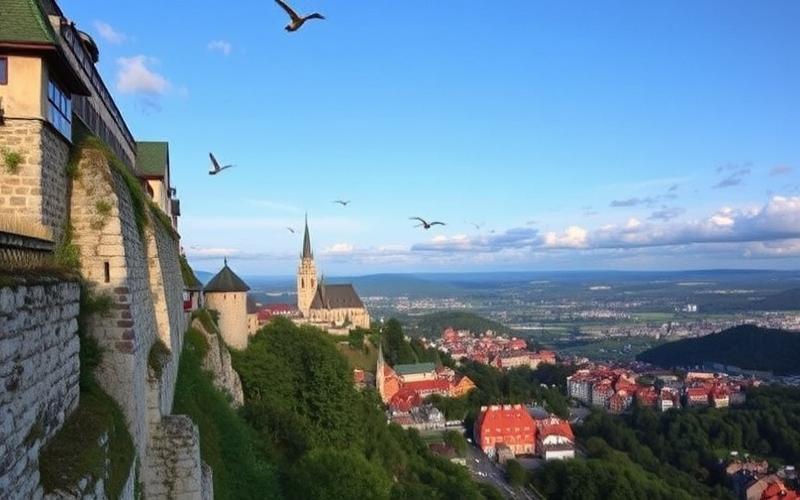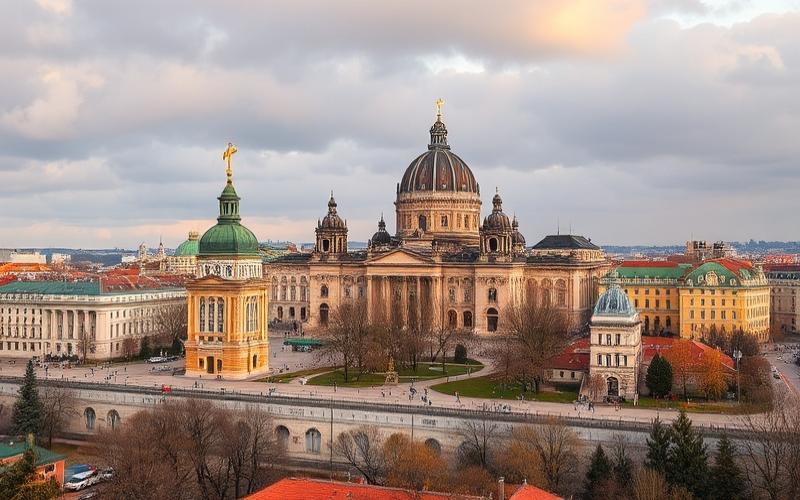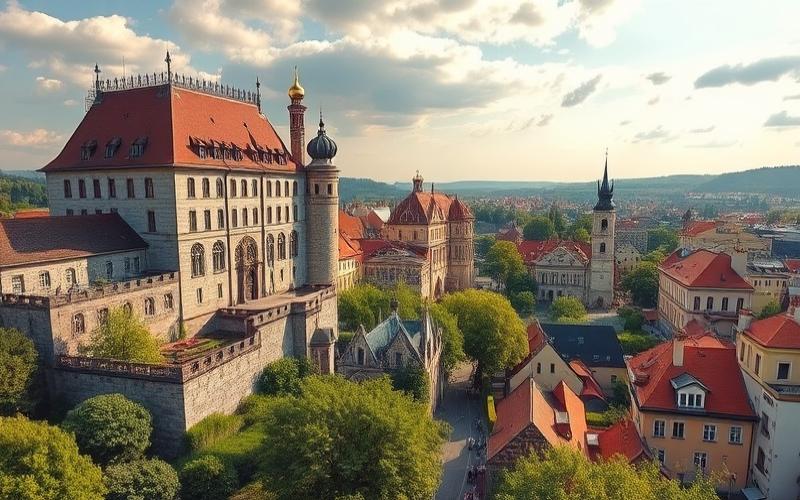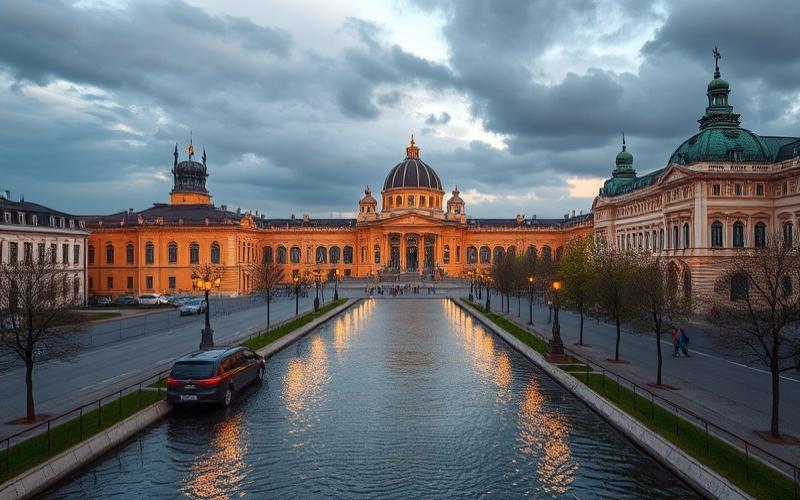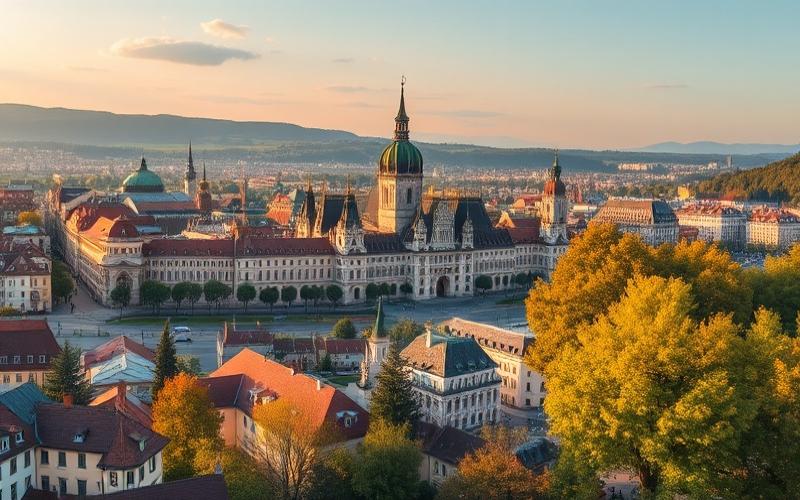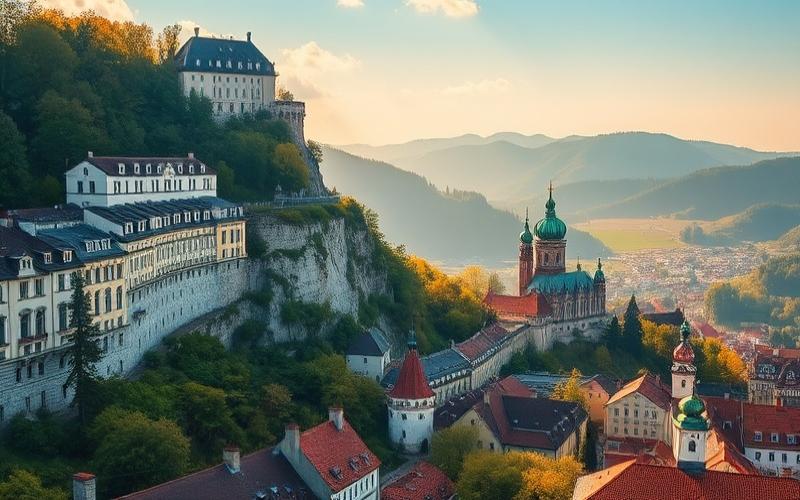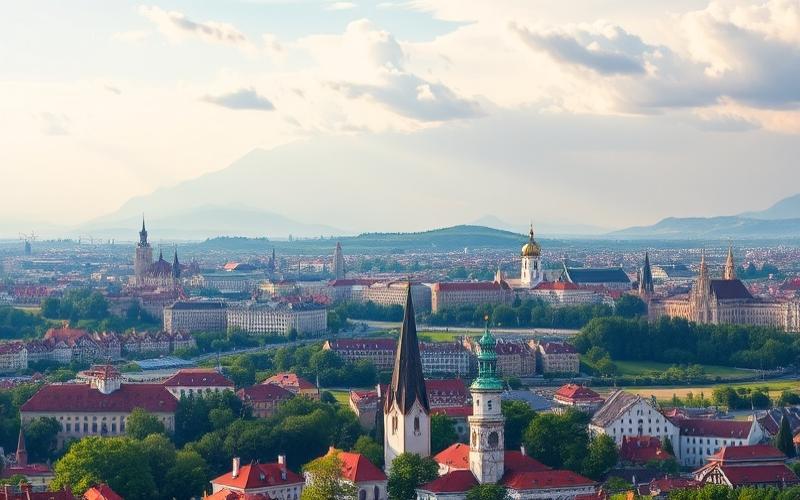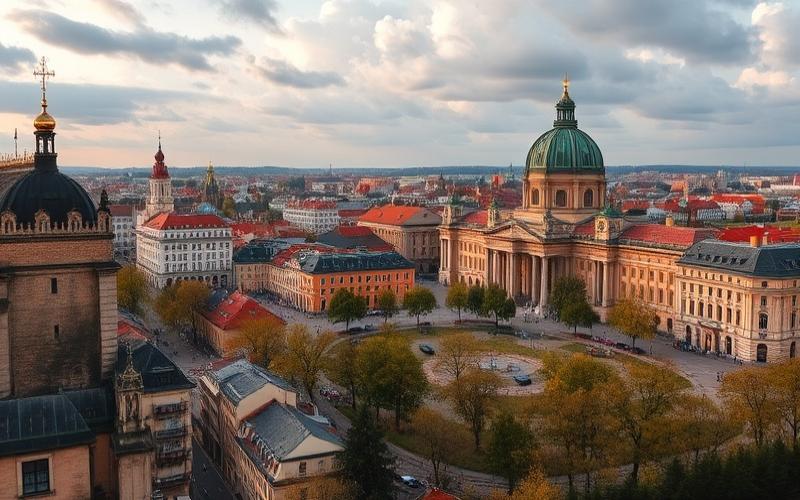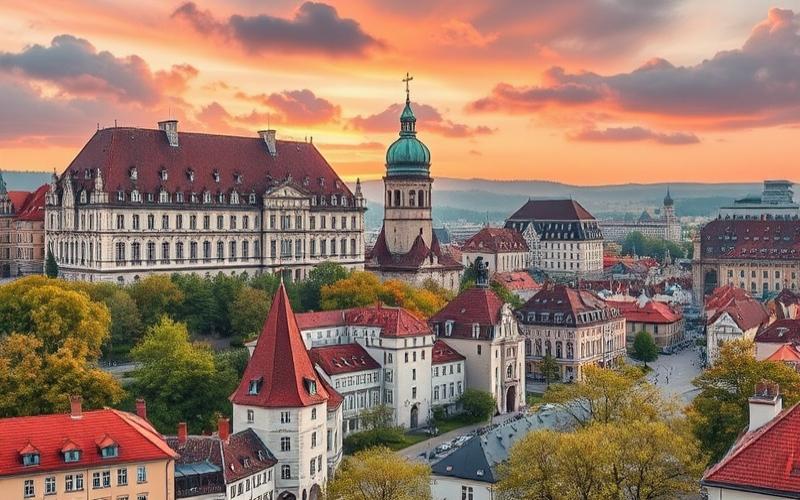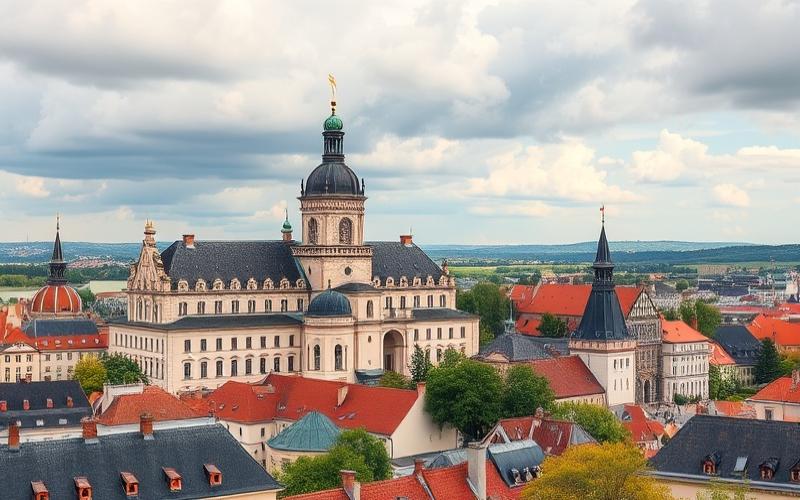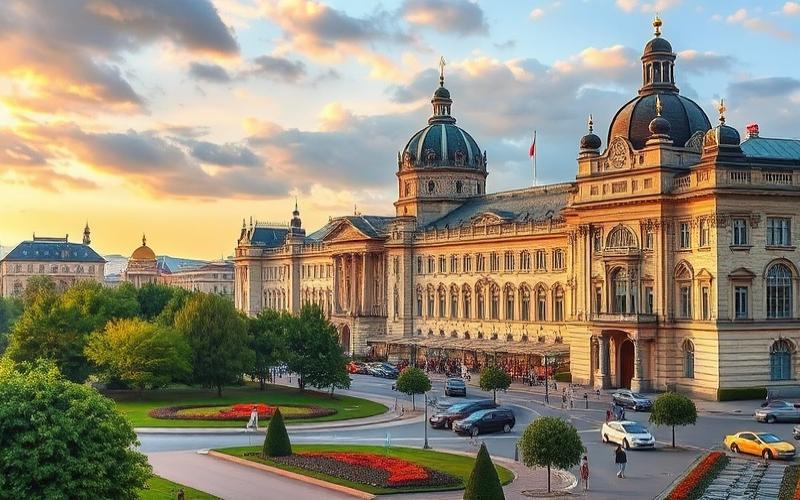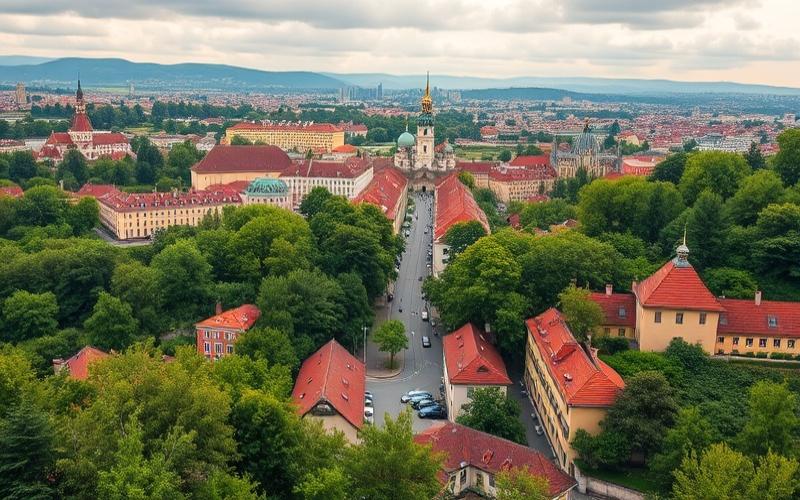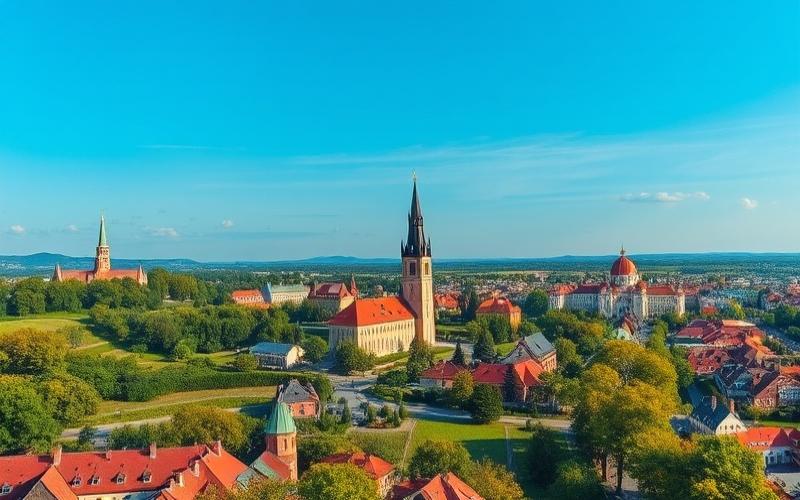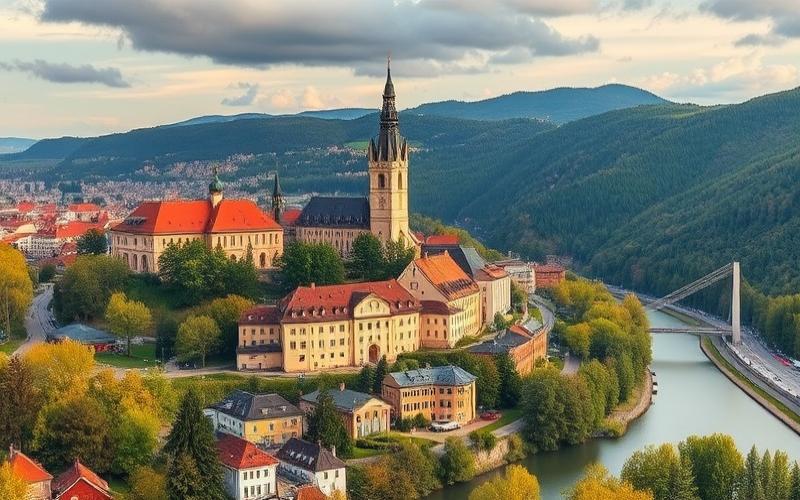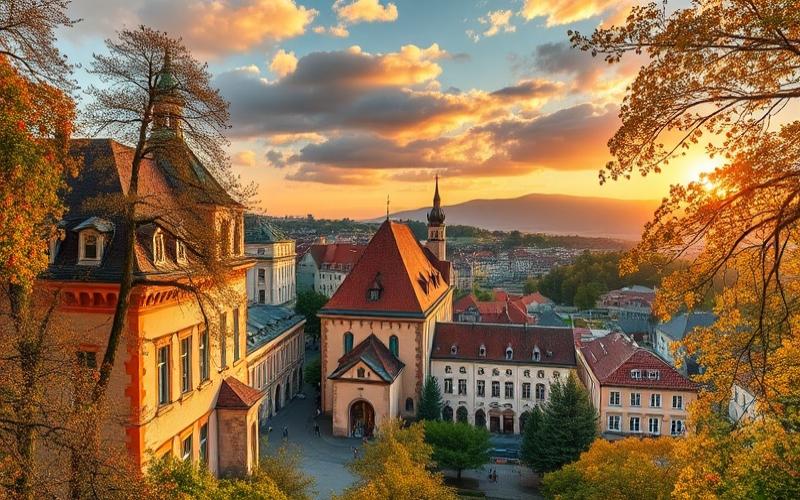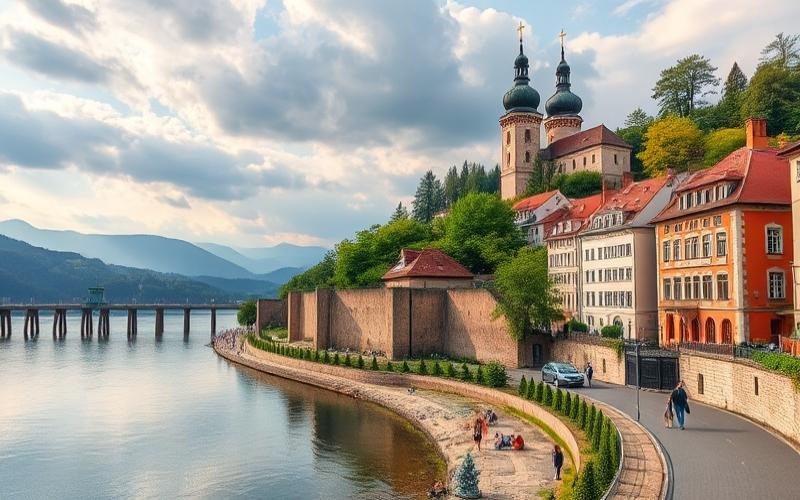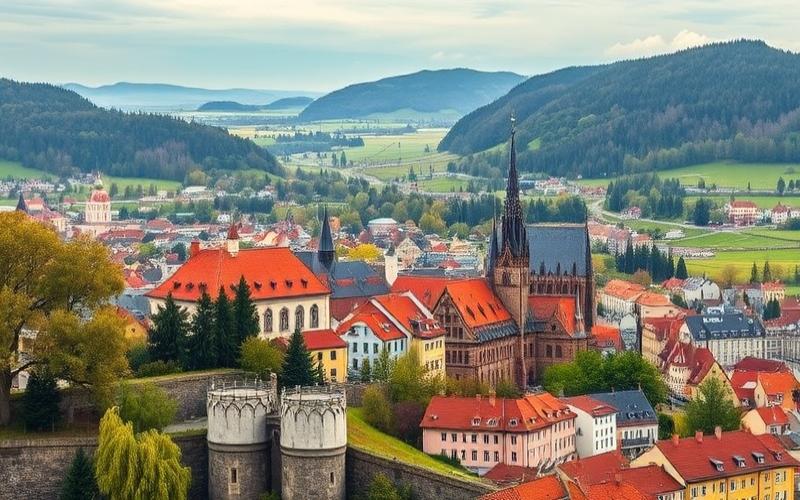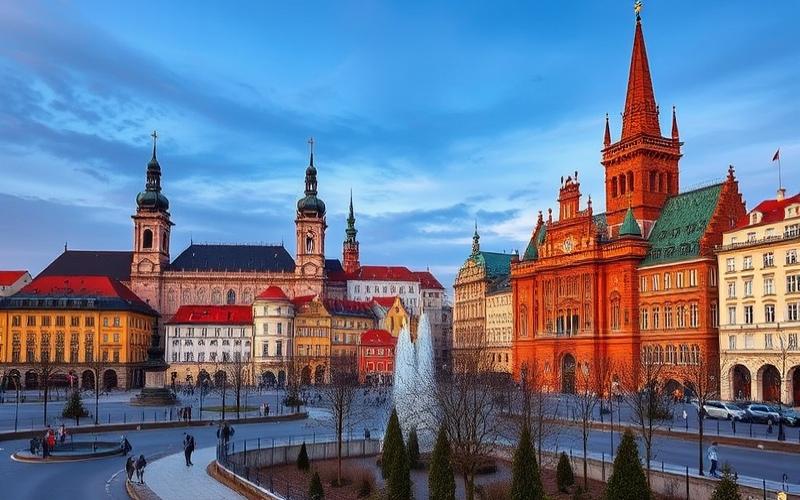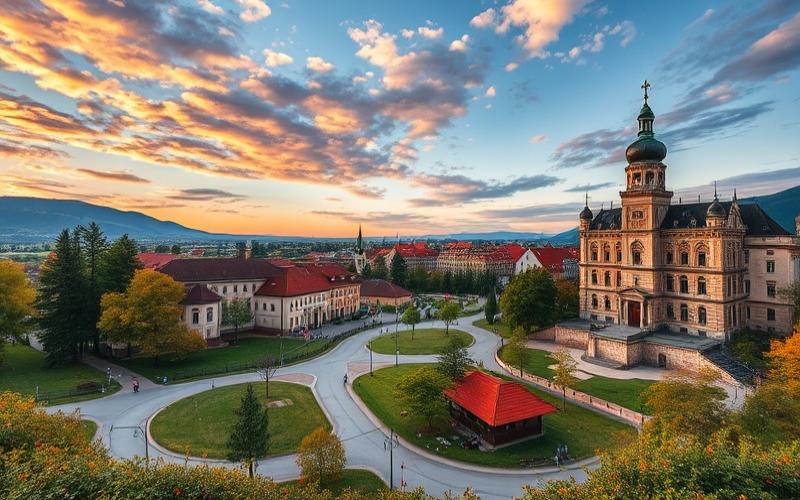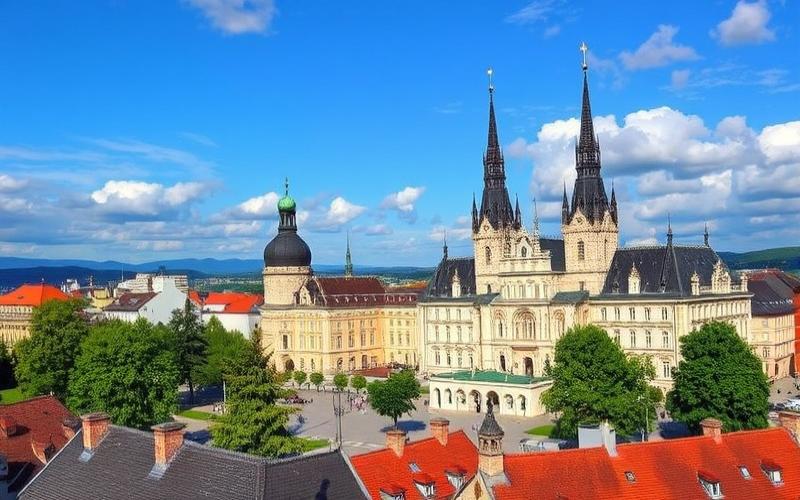
 Published on and written by Cyril Jarnias
Published on and written by Cyril Jarnias
Relocating to Poland can be an exciting and enriching adventure, but to avoid misunderstandings and facilitate your integration, it’s crucial to familiarize yourself with the cultural differences between your home country and Poland.
Whether through social customs, nonverbal communication, or attitudes toward work and hierarchy, every aspect of daily life may differ from what you’re accustomed to.
From the human warmth often displayed during traditional Polish festivities to the importance of punctuality and politeness in professional interactions, this guide will help you successfully navigate this unique cultural environment, thereby enriching your personal and professional experience on Polish soil.
Decoding Polish Social Norms
The Importance of Family and Respect for Elders
Family is the fundamental pillar of Polish society. Multiple generations often live together under one roof, particularly due to housing shortages inherited from World War II. This lifestyle fosters mutual support and the transmission of knowledge and traditions between generations. Elders are viewed as guardians of collective memory, and their experience is respected, even revered. It’s common for grandparents to play a central role in children’s education.
Concrete Example:
- In a traditional Polish household, the mother-in-law embodies family continuity, organizes meals, and ensures traditions are respected, illustrating family solidarity and resilience.
Politeness Norms and Common Greetings
Poles place great importance on politeness rules, both in private and professional spheres.
List of Common Greetings:
- Dzień dobry (Good day): used throughout the day for polite greetings.
- Do widzenia (Goodbye): a farewell phrase always appreciated.
- A firm handshake is expected, especially between men.
- Titles (Mr./Mrs. + surname) are preferred, especially during first meetings.
- It’s common to greet each person individually in a group.
Punctuality and Social and Professional Etiquette
Punctuality is a sign of respect in Poland, particularly in professional contexts. Arriving on time or a few minutes early is the norm. In social life, slight flexibility is sometimes tolerated, but it’s always appreciated to notify others if you’re running late.
Table: Etiquette by Context
| Context | Punctuality | Etiquette |
|---|---|---|
| Professional | Very important | Formal attire, individual greetings, use of titles |
| Social | Rather important | Customary gift when invited (flowers, chocolates), respect for family traditions |
Role of Religion in Daily Life
Catholicism plays a central role in Polish life. Most holidays and traditions are linked to the religious calendar, and the Catholic cross is often visible in schools and institutions. Catechism is mandatory in primary school. Christian values strongly influence social attitudes and behaviors, particularly respect for family, solidarity, and mutual aid.
Attitudes Toward Foreigners and Cultural Diversity
Polish identity, strongly united around religion and traditions, can sometimes translate into marked conservatism, especially in rural areas. While hospitality is a strong value, some stereotypes toward foreigners persist. Openness to cultural diversity is progressing but can sometimes be tinged with nationalism or caution toward otherness.
Concrete Example:
- Foreigners are generally welcomed politely, but there may be some initial reserve that fades with time and familiarity.
List of Key Values:
- Solidarity: Family and community support in all circumstances, especially during economic or social crises.
- Resilience: Ability to overcome hardships, inherited from a history marked by conflicts and shortages.
- Respect for Traditions: Maintaining customs, religious and family holidays, transmission of recipes and legends.
Concrete Example:
- The family feast, bringing multiple generations around the table, symbolizes solidarity and respect for traditions, with every gesture and smile strengthening family bonds.
Visual Summary
| Social Norm | Concrete Example | Function in Society |
|---|---|---|
| Respect for Elders | Transmission of recipes, advice | Guardian of collective memory |
| Professional Punctuality | Arriving 5 min early to an appointment | Sign of respect and seriousness |
| Politeness | Handshake, use of titles | Facilitates social relations |
| Family Solidarity | Support during crises | Cohesion, mutual aid |
| Respect for Traditions | Religious holidays with family | Preservation of identity |
| Openness to Foreigners | Invitation to share a meal | Hospitality, mutual curiosity |
Key Takeaways
Polish society is distinguished by the strength of its family bonds, respect for elders, politeness, punctuality, and the importance given to traditions and religion. Expatriates will find in Poland an environment where solidarity and resilience are values lived daily, even if openness to cultural diversity sometimes remains cautious.
Good to Know:
In Poland, family is the central pillar of social life, with marked respect for elders, while exchanging formal greetings like “dzień dobry” is expected in interactions; punctuality is valued in the professional sphere, and values like solidarity and resilience are ingrained in the culture, often reinforced by a predominant Catholic identity.
Immersing Yourself in Polish Traditions and Customs
| Religious Holiday | Date | Key Rituals | Differences with Other Countries |
|---|---|---|---|
| Christmas (Boże Narodzenie) | December 24-26 | Wigilia (meatless Christmas Eve dinner), sharing of Oplatek, 12 dishes, midnight Mass, carols (kolędy), gifts on the evening of the 24th | Vegetarian meal, importance of bread sharing, gifts on the 24th, centrality of midnight Mass |
| Easter (Wielkanoc) | Variable (March/April) | Święconka (blessing of baskets), Easter breakfast, Śmigus-dyngus (splashing water on Easter Monday) | Unique basket blessing, “Wet Monday” tradition, strong family and community dimension |
Christmas Traditions in Poland:
- The December 24th dinner (Wigilia) is strictly meatless and includes 12 symbolic dishes (often: barszcz, pierogi, carp, makowiec).
- Sharing the Oplatek (unleavened bread) before the meal, exchanging wishes, symbolizes reconciliation and brotherhood.
- After the meal, the family sings kolędy together, then attends midnight Mass (“Pasterka”).
- Gifts are opened on the evening of the 24th, unlike many countries where this occurs on the 25th.
Easter Traditions:
- On Holy Saturday, families bring a basket (święconka) filled with decorated eggs, bread, salt, meat, and cakes to church for blessing.
- On Easter Monday (Śmigus-dyngus), children and young people splash each other with water, symbolizing purification and renewal.
- The Easter breakfast is very hearty, marking the end of fasting, with stuffed eggs, cold cuts, babka (yeast cake), and żurek (sour rye soup).
Traditional Polish Weddings:
- Religious ceremonies predominate, often followed by a very festive reception (wesele) that can last until the next day.
- Ritual of welcoming the newlyweds by parents with bread, salt, and sometimes vodka, symbolizing prosperity, endurance, and joy.
- Games, dances (polonaise, mazurka), songs, and the “oczepiny” custom (removal of the bride’s veil at midnight, symbolizing the transition to married life).
- Throwing the tie or veil instead of the bouquet in some regions.
Table Customs and Gastronomy:
Family meals are central moments, often marked by politeness (waiting for the host to start, making eye contact when toasting).
Typical dishes to discover:
- Pierogi (stuffed dumplings)
- Bigos (hunter’s stew)
- Barszcz (beetroot soup)
- Gołąbki (stuffed cabbage)
- Sernik (cheesecake)
During large celebrations, it’s impolite to refuse offered food, even if you’re no longer hungry.
Polish Social Values:
- Hospitality: Receiving with generosity is a social duty. People willingly offer drinks or food spontaneously.
- Respect for Etiquette: Greeting upon entering (even in a small grocery store), offering a hand, using formal address until informal terms are suggested.
- Importance of Family: The extended family remains very close-knit, with holidays gathering multiple generations.
Anecdotes and Tips for Expatriates:
- When invited to dinner, it’s customary to bring flowers (avoid even numbers, reserved for funerals) or chocolates.
- Poles appreciate when you taste every dish, even in small quantities.
- To integrate, participating in local holidays (Christmas, Easter, All Saints’ Day) is highly appreciated. Don’t hesitate to ask about traditions; Poles enjoy sharing them.
- During major holidays, cemeteries light up with thousands of candles, creating a unique and solemn atmosphere.
- On Easter Monday, be prepared to be splashed with water, especially if you’re invited to a family with children!
Good to Know:
In Poland, religious tradition is lived through conviviality and attachment to home. Holiday meals, the warmth of family gatherings, and respect for etiquette form the backdrop of a society where you quickly feel welcomed, provided you respect its codes.
Good to Know:
Poles celebrate Christmas with a Christmas Eve dinner consisting of 12 meatless dishes, and traditional weddings often include the candle ceremony and the polonaise; the importance of family meals and hospitality are central, so bringing a small gift when invited is appreciated.
Avoiding Faux Pas in Poland: Practical Tips
Gestures to Avoid in Public to Not Offend:
- Do not shake hands on the doorstep: this gesture is perceived as bringing bad luck, a legacy of an old superstition.
- Do not cross at a red light, even if there are no cars: Poles strictly respect pedestrian signals.
- Do not drink alcohol in public places (parks, streets): this is prohibited and can result in a fine.
- Avoid smiling without reason at strangers: excessive smiling is perceived as naive or strange.
- Never say that Poland is an Eastern European country; prefer “Central Europe.”
- Avoid overly demonstrative or loud gestures in public.
Politeness and Courtesy Rules:
- Always greet when entering and leaving, but not on the doorstep.
- Be polite and reserved during first meetings; avoid excessive familiarity.
- Respect queues in stores or administrative offices.
- Use classic polite phrases: “Dzień dobry” (good day), “Proszę” (please), “Dziękuję” (thank you).
Specific Customs of Social Interactions:
- Informal address is not immediate; wait for the other person to suggest it.
- Topics of conversation to avoid: religion, politics, painful history (World War II, communism), and criticisms of John Paul II.
- Poles appreciate modesty and humility in exchanges.
Etiquette When Invited to a Polish Home:
| Do | Don’t |
|---|---|
| Bring flowers (odd number) or chocolates | Arrive empty-handed |
| Remove your shoes at the entrance | Criticize the food |
| Compliment the house or meal | Serve yourself without being invited |
| Be punctual | Arrive early or very late |
Concrete Example: Bringing a bouquet of flowers with an odd number of stems is considered good luck. An even number is reserved for funerals.
Anecdotes and Common Cultural Misunderstandings:
- A French expatriate recounts wanting to shake his host’s hand on the doorstep, triggering embarrassment and an awkward explanation about the local superstition.
- Some expatriates, surprised not to see smiles in public transport, interpret this as coldness, when it’s simply cultural reserve.
- Asking a woman openly if she plans to marry or have children can be perceived as intrusive.
Punctuality and Attitude During Professional Meetings:
- Punctuality is essential: arriving on time is a mark of respect.
- A serious and professional attitude is expected; jokes are only appreciated after trust is established.
- During a meeting, it’s recommended to be well-prepared and respect the agenda.
Topics of Conversation to Avoid in Public:
- Religion and personal beliefs
- Polish or European politics
- Money and salaries
- Criticisms of Polish cuisine or traditions
- Questions about national history, unless you’re well-informed and diplomatic
General Attitude for Harmonious Integration:
- Adopt discretion and politeness in all interactions.
- Observe and respect small local customs (removing shoes, offering a gift to the host).
- Take time to understand the culture before making judgments.
- Be open to Polish humor, often based on self-deprecation.
- Showing interest in the language, even a few words, will be appreciated.
Key Takeaways:
To avoid faux pas, one must respect traditions, show reserve and politeness, and adapt to social customs, especially during invitations or professional meetings.
Good to Know:
In Poland, avoid discussing politics in public and keep in mind that punctuality is crucial during professional meetings; bringing an odd number of flowers when invited to dinner is an appreciated gesture of attention.
Disclaimer: The information provided on this website is for informational purposes only and does not constitute financial, legal, or professional advice. We encourage you to consult qualified experts before making any investment, real estate, or expatriation decisions. Although we strive to maintain up-to-date and accurate information, we do not guarantee the completeness, accuracy, or timeliness of the proposed content. As investment and expatriation involve risks, we disclaim any liability for potential losses or damages arising from the use of this site. Your use of this site confirms your acceptance of these terms and your understanding of the associated risks.

